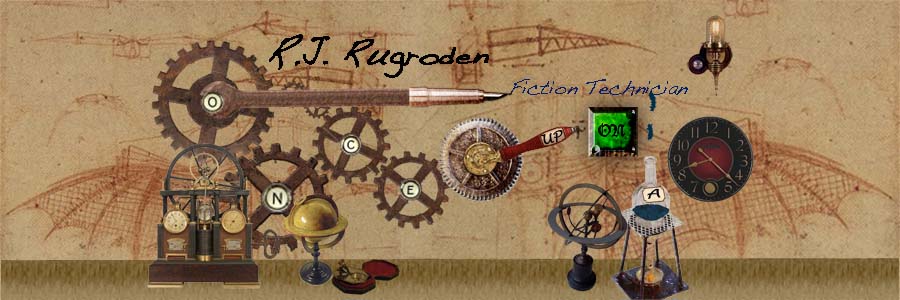An elder in my church once gave me a book called "How to Think Like Leonardo da Vinci" by Michael Gelb. He said it reminded him of me and he thought I had the potential to become a genius. I am still 'wowed' by his belief in me today.
I picked up the book again and started reading right from the beginning. It certainly gave me something to think about. The book goes a little too far, in my opinion, about the human potential. It likes to paint an optimistic picture of what a human is capable of completely on their own and it leaves God out of the picture.
But it still blew my mind. It's an amazing book and I hope whoever aspires to be a writer or artist will read it.
One thing particularly struck me in the first chapter. This is a list of the top inventions that made the difference in the Renaissance era:
Printing press
Pencil and affordable paper
Astrolab, magnetic compass, and large sailing ship
Long range cannon
Mechanical clock
All but the last two have this in common: the spread of ideas. Books people could read and ideas common people could write, ships that could transfer these ideas more readily and bring new ideas back, etc. These new ways of getting ideas out there that gave fuel to the Renaissance.
But the last two had nothing to do with spreading ideas. The cannon was a device that could finally penetrate a feudal fortress, which aided in the destruction of feudalism, paving the way for a better system.
The mechanical clock changed things: most people didn't even know what century they lived in, and were not conscious of time spent from day to day. The Mechanical Clock sort of turned time into a commodity when people realized they could spend it or waste it. (Sadly, we still haven't figured out a way to save it.)
What if there were a mechanical clock of today that would change things for us? Something that would make us aware of what we were previously oblivious to?
Perhaps it will teach us to be aware of our own attention spans and help us realize we can spend them as well as waste them.
In a sense, I believe we need to re-learn the lesson of the Mechanical Clock: Time is a commodity more than ever. If our brains can process things as fast as Gelb claims in his book, we better get processing and put that ability to use. That means purposefully choosing the correct things to process.
It's like learning Chinese. You can learn the first 1500 most used characters and gain a 92.4% understanding of the language. But if you double that by learning the next 1500 most used characters, you do not double your percentage of understanding. In fact, you only gain 5.9% more understanding. (You can find the statistical chart here.)
With everything under the sun at our fingertips, it's important that we reach first for what's most important and leave the useless drivel behind. Imagine if you weren't judicious about which 1500 Chinese characters you learned. You could end up putting in the work for 1500 characters and only gain a 5.9% understanding. But if you take the time to discern which are the right characters to learn, you could gain so much more (92.4%).
The clock made people aware of time. What can make us aware of how much attention we have to spend? Perhaps texting and driving? That, at least, has proven there is a limit to multi-tasking.
One thing I have to remember day to day is that I need time to chill. Time without the tv, computer or smart phone. If I try to focus on too many things for too long, I'm wasting my attention on all of them. I might not live up to the genius that man saw in me a long time ago, but I do know that if I overload myself by trying to do too much, no real thoughts will emerge and my creativity will be quenched.
Over the holidays, I hope you can catch a break and find some time to relax. Get away from all media for an hour or two and enjoy your family, sit and think, or journal and sketch to your heart's content.
Merry Christmas, everyone!

One of your best posts yet. Much of human knowledge is normally distributed (bell curve), although it's not necessarily so easy to quantify as your Chinese characters example (or NT Greek vocab which follows an identical trend). When you first walk into a room, its layout and colors are instantly etched into your memory. Similarly, even a brief soirée with a given body of knowledge will give rich context to your interpretation of future relevant encounters.
ReplyDelete